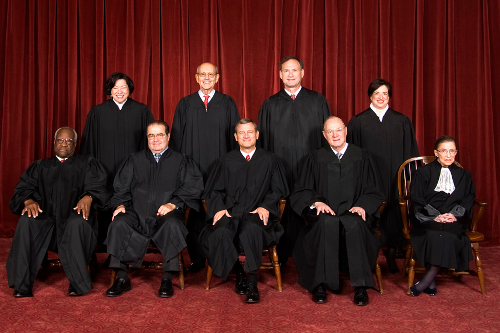In the heat of the 2008 Democratic presidential primaries, a conservative political group called Citizens United produced a "documentary" that vilified democratic candidate Hillary Clinton. But when the group tried to run the piece on TV within a month of the primary election, the Federal Election Commission prohibited it from doing so, ruling it a form of corporate "express advocacy" banned by current campaign law on corporate spending.The group sued and the case eventually made it to the U.S. Supreme Court in the landmark Citizens United vs. Federal Elections Commission.
The key issue at play was whether political campaign spending should be considered a form of speech or an overwhelming source of political corruption. Arguing on behalf of the plaintiffs, lawyer Ted Olson told the Court:
"The most fundamental right that we can exercise in a democracy under the First Amendment is dialogue and communication about political candidates. We have wrapped up that freedom, smothered that freedom, with the most complicated set of regulations and bureaucratic controls."
Apparently, Olson was quite convincing. In a bitterly divided 5-4 decision, the majority ruled that political spending (on campaigns) should indeed be considered a form of speech protected under the First Amendment, and that the government has no business regulating political speech.
 What that boils down to: money is speech and corporations have the same First Amendment protections as people.
What that boils down to: money is speech and corporations have the same First Amendment protections as people.
The decision reversed previous campaign law and allowed corporations, unions, and other organizations to contribute unlimited amounts of money to groups called "independent expenditure" organizations that work on behalf of candidates but do not directly coordinate with them.
